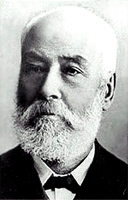On the eve of 24 May, the day of the Slavonic alphabet, culture and education, we turn to traditional songs dedicated to books and to teachers. Songs that attest to Bulgarians’ love of knowledge and learning, of the respect they have for the educated.
The day of the brothers Sts. Cyril and Methodius is marked by the church on 11 May. It was first celebrated as the day of education in Plovdiv in 1851, when celebrations and a school procession were organized at the diocesan school there, named after the two brothers. There is no other nation to honour the creation of its alphabet and its literature with a special day.
 There are a great many proverbs and riddles about books and literature. One of the most widespread among them (varying slightly depending on the dialect) is: “A white fallow field, black seeds. The hand sows it, the eye reaps it. What is it? – A book.” Essentially, books are the symbol of knowledge, a constant companion of the learned.
There are a great many proverbs and riddles about books and literature. One of the most widespread among them (varying slightly depending on the dialect) is: “A white fallow field, black seeds. The hand sows it, the eye reaps it. What is it? – A book.” Essentially, books are the symbol of knowledge, a constant companion of the learned.
Once teachers were called daskal (schoolmaster), gramatik (knowledgeable), gramoten (literate), knizhoven (learned). A great many teachers from the time of the National Revival have come down to us called by those names – Daskal Manol, Yoan Gramatik, Matey Gramatik… The first schools in Bulgaria were church or monastery schools and the teachers were not necessarily specially trained. They were usually priests, or people connected with the church, artisans, young men who could read and write. The character in the song called “Make a teacher out of him” is “young voevod Milen” who could read and write really well. He knew how to read “Greek books, Turkish books, but most of all white Bulgarian books”. That is why the village notables decided to make a teacher out of him – to teach children to read and write. “White” was popularly used as a synonym of purity and loftiness. That is why in traditional songs, faith is “white Bulgarian”, a beautiful girl is “white”…
 “Naiden Gramarik (or alternately Handsome Naiden) was a name famous, for he could read and write – better than the bishop, the bishop of Plovdiv.” Further the lyrics of the song about him go that the cleric wrote a book (letter) and the book “wrote, the book talked” to Naiden and told him to go see him. When the two met, the bishop told the young gramatik to become a daskal. This song, sung in innumerable different versions is actually about a historical figure – Naiden Gerov – or at least that is what historians say. A Bulgarian writer, linguist, folklorist, founder of one of the first class schools, Naiden Gerov was the man who initiated the first celebration of the day of Sts. Cyril and Methodius.
“Naiden Gramarik (or alternately Handsome Naiden) was a name famous, for he could read and write – better than the bishop, the bishop of Plovdiv.” Further the lyrics of the song about him go that the cleric wrote a book (letter) and the book “wrote, the book talked” to Naiden and told him to go see him. When the two met, the bishop told the young gramatik to become a daskal. This song, sung in innumerable different versions is actually about a historical figure – Naiden Gerov – or at least that is what historians say. A Bulgarian writer, linguist, folklorist, founder of one of the first class schools, Naiden Gerov was the man who initiated the first celebration of the day of Sts. Cyril and Methodius.
Frequently, really young boys were appointed schoolmasters. Like the character in a song by Georgi Germanov “A daskal boy came to teach the children”. “He taught and taught them, then the lasses taught him.” So, the boy fell in love with Zlatka, stopped going to the school and would always be at her house bearing gifts – lemons and oranges.

English version: Milena Daynova
Photos: libraryOn June 3 at 18.00 in Art Gallery "Circle" in Kardzhali the photo exhibition "Ethnopalitra - the faces of Balkan folklore" will be opened. The exhibition is the work of journalist and historian Georgi Kulov. The exhibition is inspired..
There are no data regarding the exact number of Bulgarian dance ensembles operating abroad. But there is one thing that is certain – they are amateur groups scattered across all continents, acting as a bridge between Bulgaria and the rest of the..
Bulgaria's Pernik will host the 44th annual meeting of the Federation of European Carnival Cities , which is opening today , the municipal administration announced. More than 100 delegates from 20 countries are expected to elect a new president and new..

+359 2 9336 661
